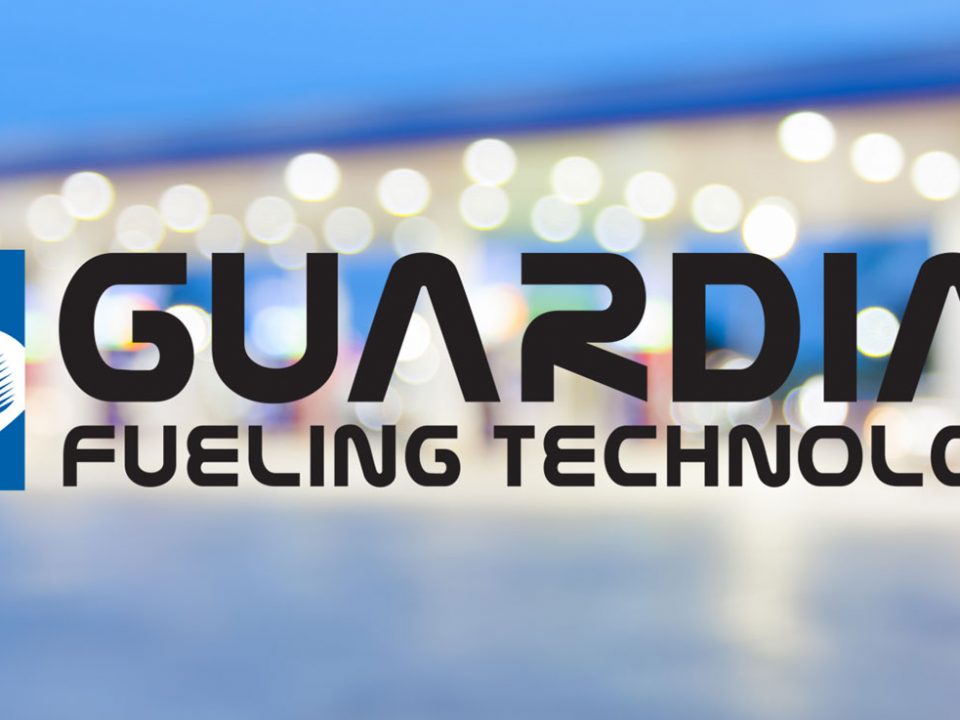
How Aircraft Fuel Tank Design Impacts Fuel Efficiency and Range
March 1, 2024
Guardian Fueling Technologies Expands Gilbarco Veeder-Root Presence into Oklahoma and Colorado
March 18, 2024In a society that is largely reliant on a wide range of machinery and equipment, custom fuel tanks have become a vital component in several sectors. Whether you’re involved in transportation, agriculture, construction, or any other field that requires fuel-powered machinery, the importance of a reliable and well-designed fuel tank cannot be overstated. When it comes to creating a custom fuel tank, one of the most critical decisions you’ll face is selecting a suitable material. This choice will impact not only the tank’s durability and longevity but also its overall performance and safety. In this guide, we’ll explore the options of steel, aluminum, and composite materials for custom fuel tank design, with a particular focus on how each choice can benefit your specific needs. Guardian Fueling Technologies, a trusted expert in fuel system solutions, will guide you through the decision-making process and offer insights into the crucial factors that influence the selection of materials for your custom fuel tank.
The Significance of Custom Fuel Tanks
Custom fuel tanks are the unsung heroes behind various industries. They serve as the vital link between fuel storage and machinery, ensuring that engines have a consistent and efficient supply of fuel. Whether you’re operating a fleet of vehicles, managing heavy machinery on a construction site, or powering agricultural equipment, a well-designed custom fuel tank is indispensable.
The Versatility of Custom Fuel Tanks
Custom fuel tanks are designed to cater to a wide range of applications. From stationary tanks for backup power generators to mobile fuel tanks for trucks and heavy machinery, these tanks are adaptable to the specific needs of your industry.
Tailored Solutions for Fuel Storage
Custom fuel tanks are engineered to meet precise requirements, providing a bespoke solution for your fuel storage needs. They can be designed to fit in the available space and configured to meet the operational demands of your machinery.
The Crucial Role of Materials in Custom Fuel Tank Design
The choice of materials for your custom fuel tank is one of the most critical decisions you’ll make during the design and manufacturing process. It directly impacts several crucial aspects of your tank’s performance, including its durability, safety, and compatibility with the stored fuel.
Material Considerations
Selecting the suitable material for your custom fuel tank is a complex decision. Several factors should guide your choice, including:
- Fuel Compatibility: Different materials have varying levels of compatibility with different fuels. It’s essential to select a material that won’t react with the fuel it’s storing.
- Environmental Conditions: The tank’s operating environment, including temperature, humidity, and exposure to elements, should be considered.
- Weight: The material’s weight can influence the tank’s overall weight, which is a crucial factor in mobile applications such as trucks and vehicles.
- Cost: Material costs and fabrication expenses should align with your budget.
- Regulatory Compliance: The material choice must meet regulatory and safety standards, especially when storing hazardous fuels.
Steel Custom Fuel Tanks
Steel has been a traditional choice for custom fuel tanks for many years. It offers a range of benefits that make it a popular option, especially for large, stationary tanks.
Strength and Durability
- Steel’s Strength: Steel is known for its exceptional strength, which ensures that the tank can withstand external forces and the weight of the stored fuel.
- Longevity: Steel tanks have a long lifespan and can provide reliable service for decades.
- Resistant to Impact: Steel tanks are less likely to suffer damage from external impacts or punctures.
Corrosion Resistance
- Corrosion Protection: Steel tanks can be coated with protective layers to prevent corrosion and extend their life.
- Stainless Steel Option: Stainless steel is highly resistant to corrosion, making it an ideal choice for storing fuels that may be corrosive.
High-Temperature Resistance
- Heat Tolerance: Steel tanks can handle high temperatures, making them suitable for applications where heat is a concern.
Large Capacities
- Ideal for Stationary Tanks: Steel is a preferred choice for large stationary tanks used in industries like energy generation and bulk fuel storage.
Aluminum Custom Fuel Tanks
Aluminum is gaining popularity as a material for custom fuel tanks, especially in applications where weight is a critical consideration.
Lightweight and Portable
- Weight Advantage: Aluminum is significantly lighter than steel, making it an excellent choice for mobile fuel tanks in vehicles and boats.
- Fuel Efficiency: Lighter tanks result in better fuel efficiency, a crucial factor for vehicles with weight constraints.
Corrosion Resistance
- Naturally Corrosion-Resistant: Aluminum has a natural corrosion resistance, which can be enhanced with protective coatings.
Customization Options
- Easy to Fabricate: Aluminum is easy to work with, allowing for a wide range of customization options in terms of shape and size.
- Welding Versatility: Aluminum can be welded to create seamless tanks with no need for rivets or bolts.
Environmental Friendliness
- Recyclable: Aluminum is highly recyclable, making it an environmentally friendly choice.
Composite Custom Fuel Tanks
Composite materials are a relatively recent addition to the custom fuel tank design, offering unique advantages that make them increasingly popular in specific applications.
High-strength, Low-weight
- High-Strength Fiberglass: Composite tanks often utilize high-strength fiberglass materials, which are incredibly strong yet lightweight.
- Weight Savings: Composite tanks are lighter than steel and sometimes even aluminum, making them advantageous for various industries.
Resistance to Corrosion
- Exceptional Corrosion Resistance: Composite materials are highly resistant to corrosion, even without additional protective coatings.
Non-Conductive
- Electrical Insulation: Composite materials are non-conductive, making them suitable for applications where electrical insulation is critical.
Impact Resistance
- Exceptional Impact Resistance: Composite tanks can withstand significant impacts, reducing the risk of damage.
Design Flexibility
- Design Freedom: Composite materials can be molded into complex shapes, providing flexibility in tank design.
Low Thermal Conductivity
- Reduced Heat Transfer: Composite materials have low thermal conductivity, which can be beneficial in applications where heat retention or insulation is required.
Making the Right Choice for Your Custom Fuel Tank
Selecting the suitable material for your custom fuel tank is not a one-size-fits-all decision. Each material—steel, aluminum, and composite—comes with its unique set of advantages and limitations. To make an informed choice, consider the following factors:
Fuel Type
Different fuels have varying levels of compatibility with materials. Ensure that the chosen material is resistant to corrosion and degradation caused by the stored fuel.
Tank Size and Weight
The size and weight of the tank play a crucial role in material selection. Smaller and mobile tanks benefit from the lightweight properties of aluminum or composites, while larger stationary tanks may favor the durability of steel.
Environmental Conditions
Consider the environmental conditions in which the tank will operate. Factors such as temperature, humidity, and exposure to the elements can influence material choice.
Regulatory Compliance
Ensure that your chosen material complies with industry and safety regulations, particularly when handling hazardous or flammable fuels.
Cost Considerations
Compare the cost of materials and fabrication to align with your budget without compromising on quality and safety.
Longevity and Maintenance
Consider the expected lifespan of the tank and the maintenance requirements associated with the chosen material.
Guardian Fueling Technologies: Your Partner in Custom Fuel Tank Design
Guardian Fueling Technologies, a respected expert in fuel system solutions, is your trusted partner in designing and manufacturing custom fuel tanks. With extensive experience in the industry, we understand the unique needs of different applications and can help you make the right choice of materials for your custom fuel tank. Our expertise extends to a wide range of industries, and we are committed to delivering solutions that are safe, efficient, and tailored to your specific requirements.
Tailored Solutions
Our commitment to delivering tailored solutions ensures that your custom fuel tank meets your precise requirements, whether for a vehicle, generator, boat, or any other application.
Regulatory Compliance
We are well-versed in industry regulations and safety standards, ensuring that your custom fuel tank complies with all requirements.
Longevity and Performance
Our focus on quality and durability guarantees that your custom fuel tank will provide reliable and long-lasting performance.
Environmental Responsibility
We prioritize environmental responsibility and can guide you in selecting materials that align with sustainability goals.
Conclusion:
Choosing the suitable materials for your custom fuel tank is a decision that should not be taken lightly. The material you select will have a profound impact on the tank’s durability, safety, performance, and longevity. Whether you opt for the strength of steel, the lightness of aluminum, or the unique advantages of composite materials, Guardian Fueling Technologies is here to support you every step of the way. Our expertise in fuel system solutions and custom tank design ensures that your choice is well-informed and that the result is a custom fuel tank that meets your specific needs, stands the test of time, and contributes to the success of your industry.
Related Tag: Guardian Technologies


